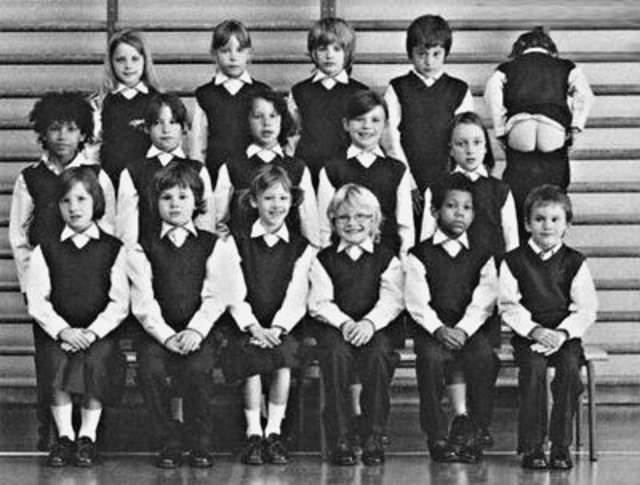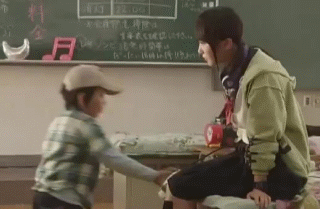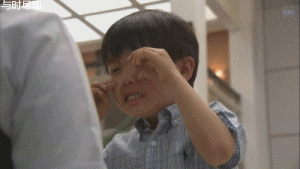This is A Guide for Parents
Sexual Development in Young Children
As parents, it is important for us to communicate with our children and teach them as they grow. It is easy for parents to talk with their children about the differences between right and wrong, but it is difficult for parents to talk with their children about sexuality. It is estimated that 40-85% of children will engage in at least some sexual behaviors before
turning thirteen years of age (Friedrich, et al, 1991). It is believed by experts that 80% of children have masturbated by the age of three (Parenting, 1997). Children need to learn about sexuality. If children do not receive information about
sexuality from their parents, they will receive it from their peers, TV, magazines, movies and other media, which may provide them with misinformation and cause confusion. The more information that parents have about childhood sexuality the better they will be able to respond to their child’s sexual development. Natural and healthy sexual
exploration during childhood is an information gathering process. At a very young age, children begin to explore their bodies by touching, poking, pulling, and rubbing all their body parts, including their genitals.
What behaviors should I expect as my child develops sexually?
Many parents become embarrassed, upset, and even concerned when they see their children begin to explore their sexuality. This is very natural and normal for children and parents should not over-react to this behavior. When children are exploring their genitals, it should not be considered a sexual behavior. Children’s understanding of genital
exploration is that “it feels good”, not that “I am doing something sexual”. When children begin to explore, ask questions and/or experiment with their own bodies or with others, this is a sign to parents that they are curious and have questions. Children will begin to explore their own bodies and will seek out opportunities with same-age peers to compare similarities and differences of body parts. This will happen with same sex peers and opposite sex peers. This curiosity about basic anatomy can also be satisfied by parents who read books about body parts with their children.
Children will touch their genitals to explore their anatomy and sensations. Such touching may lead to masturbation. Children often rub their genitals with their hand or against objects, such as furniture, toys, and pillows. This is normal childhood development. Masturbating for children can serve to relieve tension, to relax, and to comfort.
Children’s behaviors and play are related to their experiences and exposures. Children will play house and act out sexual behaviors with dolls, pets, and stuffed animals. Children may use their toys to model kissing, holding hands, and sleeping together. When children are exposed to sexualized activity, such as seeing adults show affection, having intercourse, or observing sexual behaviors on TV, they become curious and may begin to experiment through their play and act out situations to which they’ve been exposed. Children often tell sexual jokes and use sexual words with peers. Children will imitate what they have heard and observed but often do not understand the meaning behind their words.
How do I respond to sexualized behaviors?
As children begin to explore their bodies and experiment with their peers, parents should not shame, blame, or discipline a child. Parents who do not feel comfortable discussing sexuality or fail to recognize that exploratory behaviors are normal may respond to children’s behaviors by over-reacting.
When responding to sexualized play between children:
– Do not over-react:
By staying calm and handling the situation without over-reacting, children will develop a positive sense of self and sexuality.
– Stop the behavior:
If children are masturbating in public or in front of others, explain to them that it is not appropriate to touch their private parts in public and that if they feel they need to touch their private parts, they need to do it in private, hence “private parts”. Children should not be told that it is “bad”, “dirty”, or “nasty”, when found masturbating and they should not be punished.
When children are exploring their sexuality with other children, parents should explain to them that when they are playing with their friends, they need to leave their clothes on and that it is not okay to touch or show private parts. Parents should also ask the children if they have any questions and be available to answer any that they ask.
– Don’t punish:
Don’t yell at or punish them. Punishing sexual behaviors can lead to sexual inhibitions later on and hinder a child’s sexual development. Tell children that their behavior is not appropriate by being clear and direct without making them
feel guilty.
-Provide information:
Explain that touching their own private parts is private and should be done in private. Reinforce that children should respect each other and the touching of others’ private parts is not acceptable.
– Redirect the behavior:
Redirect the children’s behavior into a more acceptable play activity. Introduce a new game or other activities to distract their behavior.
Body and Personal Safety
Talking to children about body safety can be difficult for parents. It seems that most parents think that if they talk to their children about body safety, they have to talk to them about “sex”. This is not the case. Parents teach their children to look both ways when crossing the street, to wear their seat belt in a vehicle, and to not talk to strangers. At the same time, parents need to teach their children that they have private parts of their bodies and that it is not okay for others to touch these parts. Parent should begin to teach their children about body safety between the ages of 3-5.
– Teach children proper names for all body parts, including names such as genitals, penis, vagina, and private parts.
– Teach children to bathe, toilet, and dress themselves starting at an early age.
– Teach children that privacy, modesty, personal behaviors, and boundaries are important.
– Teach children that it is not okay for anyone to invade their privacy or boundaries. Explain that it is not okay for others to look at or touch their private parts. Explain that these parts are private and need to be kept private.
– Give your child permission to say “NO” to people who want to touch his or her private parts. Let your child know that saying “NO” is okay and the right thing to do.
– Do not force your child to give hugs or kisses to people they do not want to. Respect their right to tell “grandma or grandpa” that they do not want to give them a kiss or a hug.
– Let your child know that he or she should tell you right away if anyone attempts to look at or touch their private parts. Children need to know that it is their job to tell you if anyone invades their bodies. Reassure them that you will listen to them, believe them and keep them protected.
– Reassure your child that most touch are okay touches, but that they can say “NO” and need to tell you about any touches that are confusing or that scare them.
– Remember to review this information and to practice it on a regular basis. Parents should talk to their children about personal safety during:
o bath time: as you are teaching your child to wash himself or herself
o bed time: when they are focused on what you are saying
o new situation: before going to camp, starting school, going to day care Play “what if” games with your children and let them practice saying “NO”. By role playing with your children, you help them develop the skills they need in certain situations.
Normal Stages of Sex Play
0-4 Years Old
Touches or rubs own genitals (random)
Shows genitals
Interested or asks about bathroom functions
Interested and explores the differences
between genitals
Uses dirty language
Plays house and doctor (imitative,
modeling)
May insert objects into genitals
5-8 Years Old
Touches self (specific)
Tells “dirty jokes”
Plays doctor while exploring other children
Kissing, holding hands
Mimic dating
Writing letters about “sex” terminology
9-12 Years Old
Touches self and others’ genitals
Mooning
Exhibitionistic
Kissing or dating
Talks about sex with same-sex peer
Interested in own organs and functions
Looks at pictures in books, writes letters
and poems about sexual activity
Dry humping
Additional Tips for Parents
It is important for parents to protect their children. The following are some things that parents can do:
– Listen to your child when they have something to tell you. Take seriously what children have to say about the way people treat them. When your child says that they do not like someone, take the time to figure out why they do not like that person.
– Notice when your child is being bullied, picked on, or treated differently. Help your child to solve problems and deal with situations appropriately.
– Monitor adult and older children around your children. Know the people and friends with whom your child is spending time. Do not leave your child with adults, relatives, or friends that you do not trust, do not know, or have abused children in the past.















